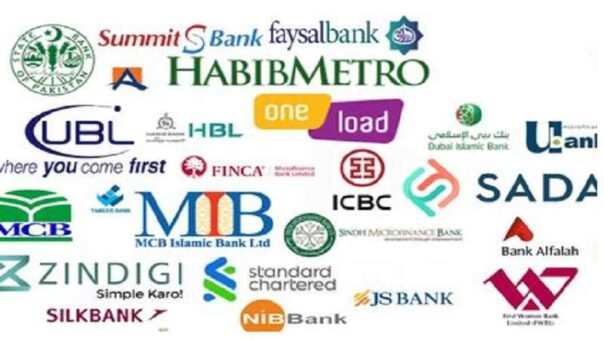KARACHI: Pakistan’s banking sector is facing a threat from non-performing loans (NPLs) due to slow economic growth, according to analysts at KTrade Research.
The country’s record-high inflation and interest rates have weighed down economic growth, leading to credit rating downgrades by S&P and Moody’s.
READ MORE: SBP directs banks to formulate digital fraud prevention policy to protect account holders
The textile sector, which accounts for 16% of the country’s loan book as of December 2022, has also experienced a slowdown, increasing the risk of NPL formation and constraining profits for the sector.
The analysts predict that while the banking companies’ earnings will increase year-on-year due to a hike in the policy rate supported by a strong current account savings account mix, profits will be sequentially impacted by higher cost deposits, subdued deposit and loan growth, and the risk of higher NPLs. However, the withdrawal of ADR tax is expected to provide some relief to the sector by lowering the effective tax rate.
READ MORE: Banking Mohtasib warns customers of new techniques used by fraudsters to steal money
The analysts expect Meezan Bank to outperform the industry due to strong net interest income (NII) expansion, with earnings expected to improve 110% YoY/18% QoQ. They also anticipate that banks will maintain decent payouts during the period under review.
According to the analysts, the increase in policy rates by 400 basis points to 20.0% during 1QCY23 to curb inflationary pressure is expected to enhance net interest margins (NIMs) of KTrade banks year-on-year. This would be supported by a favorable current account savings account mix averaging at 82% for KTrade banks and a timely shift to floater PIBs from fixed PIBs.
READ MORE: SBP announces bank holidays for Eid-ul-Fitr 2023
Moreover, they project that non-funded income (NFI) in the quarter will remain flat amidst the slowdown in economic activity. However, on a yearly basis, NFI is expected to grow supported by higher fee and foreign exchange income amidst currency depreciation.
The withdrawal of ADR taxation is expected to provide support to the bottom-line, with a lower effective tax rate of 43% in 1Q. The banking industry was subject to adverse taxation measures given ADR falls below 50%. As a result, all banks enhanced their ADR to avoid further taxes in 2HCY22.
READ MORE: Pakistan raises benchmark rate to 21% to tackle economic challenges: SBP
This relaxation has allowed the sector to lend based on merits and increase the proportion of investment to alleviate the fiscal deficit.
